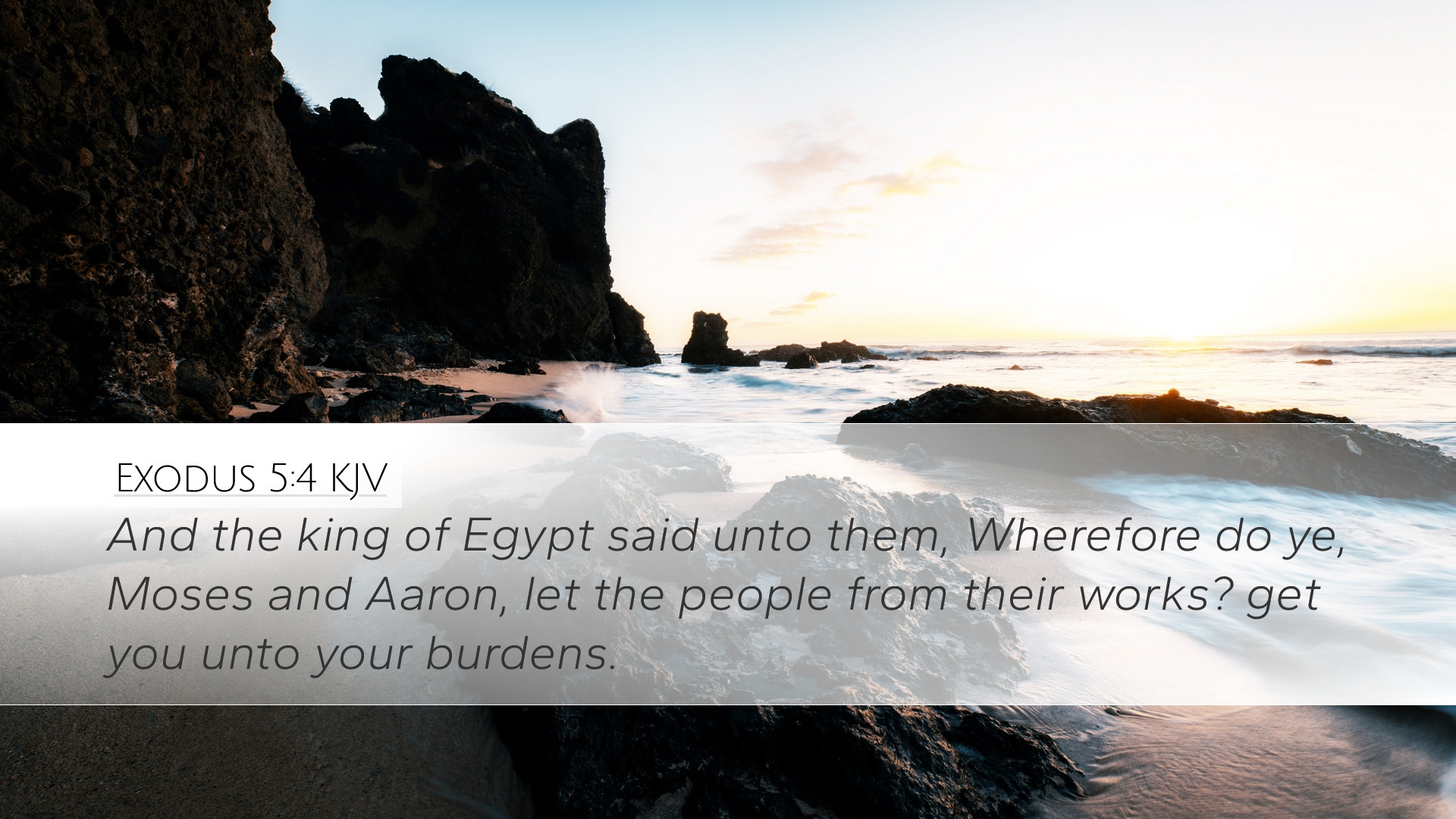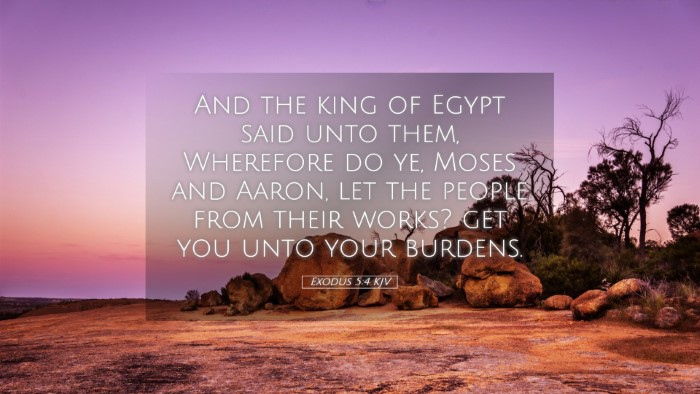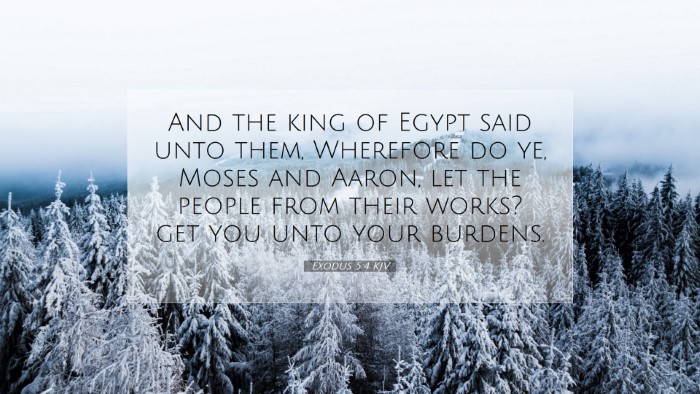Exodus 5:4 - Commentary Overview
Verse: Exodus 5:4 (KJV): "And the king of Egypt said unto them, Wherefore do ye, Moses and Aaron, let the people from their works? get you unto your burdens."
Contextual Background
The book of Exodus narrates the story of Israel's enslavement in Egypt, their liberation through God’s chosen leader, Moses, and their journey to the Promised Land. Exodus 5 serves as a critical juncture where Moses and Aaron confront Pharaoh, challenging the status quo of oppression.
Commentary Insights
Matthew Henry's Commentary
Henry emphasizes the audacity of Moses and Aaron in approaching Pharaoh, highlighting that they bring a message from God, whom Pharaoh does not recognize. In his commentary, he notes that Moses and Aaron's demand for the Israelites to be allowed to leave for a feast in the wilderness appears trivial to Pharaoh compared to the economic impact of their labor.
Henry discusses the king's reaction as one of disdain. He is unwilling to let his workforce go, demonstrating the resistance of earthly authority to divine mandate. This represents the wider struggle between the Kingdom of God and worldly powers, a recurrent theme in biblical narratives.
Albert Barnes' Notes
Barnes elaborates on the Pharaoh's question, "Wherefore do ye, Moses and Aaron," suggesting that Pharaoh sees their actions as a direct challenge to his authority and control over the Israelites. Barnes comments on the pride and hardness of Pharaoh’s heart, reflecting the corrupting influence of power that blinds leaders to the plight of the oppressed.
Barnes also points out that Pharaoh's imperative "get you unto your burdens" carries a sense of dismissal and contempt. The call to return to hard labor illustrates the brutal reality faced by the Israelites and underscores Pharaoh's refusal to consider their welfare.
Adam Clarke's Commentary
Clarke provides a linguistic analysis of the term "burdens," which he connects to the labor imposed upon the Israelites. He notes that Pharaoh's response reveals not only his political strategy to maintain control but also his theological misunderstanding of Israel's God. Clarke emphasizes the importance of recognizing divine authority versus human authority, as Pharaoh ultimately represents a flawed understanding of power.
Clarke suggests that the opposition faced by Moses and Aaron symbolizes the resistance that Christians may encounter when they stand for God's truth in a secular world. His commentary draws parallels between ancient Egypt’s oppression and modern-day spiritual struggles.
Theological Implications
Exodus 5:4 conveys deep theological messages about authority, oppression, and divine intervention. It prompts reflections on the nature of God’s calling and the societal structures that often resist divine purposes.
- The Nature of Authority: This verse invites a critical examination of how earthly authority can conflict with God's mandate. Pharaoh’s protective stance over his labor force serves as a reminder of the potential tyranny embedded in power structures.
- Divine Mandate versus Human Response: Moses and Aaron's obedience to God's calling reflects the need for believers to adhere to divine mandates, even in the face of powerful opposition.
- God’s Sovereignty: Central to this passage is the assertion that God remains sovereign despite human rebellion and obstinacy. His ultimate plan for redemption prevails amidst human defiance.
Practical Applications
The insights from this verse encourage pastors, students, and scholars to apply the following lessons in contemporary ministry and theological study:
- Courage in Confrontation: Like Moses and Aaron, believers are called to confront societal injustices, often requiring courage in the face of powerful adversaries.
- Understanding Oppression: The discussion of Israel's burdens can foster greater empathy for modern-day struggles against various forms of oppression. The church's role in advocating for justice resonates with this biblical narrative.
- Awareness of God's Purpose: Believers are reminded of their purpose in God's redemptive plan, encouraging an active faith that results in pursuing God-honoring objectives.
Conclusion
Exodus 5:4 serves as a poignant reminder of the tension between divine authority and human power. Insights from the commentaries of Matthew Henry, Albert Barnes, and Adam Clarke enrich this understanding, offering layers of meaning that resonate with the historical context and contemporary faith practice. As we dive deeper into this passage, we are challenged to respond to God’s call with courage and commitment, ever mindful of our mission to advocate for liberation and justice in our world.


